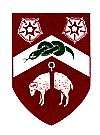Child Health in Leeds
MSc Child Health
Postgraduate Programmes in Child Health
At the University of Leeds our Postgraduate Programmes in Child Health offers you more than just a university degree. We offer you a chance to complement and supplement your clinical experience, protected time from the workplace to reflect on you practice, space to shape your career direction and support to achieve peer reviewd publication.
For more information email childhealth@leeds.ac.uk
Course outline
The University of Leeds postgraduate programme in child health is an integral part of the training programme in Paediatrics within the Yorkshire and Humber Deanery, undertaken at ST4-6 level. Trainees regard the programme as a particular highlight of training in Yorkshire. All trainees undertake a University Postgraduate Diploma in Child Health, with the option to extend this to achieve an MSc in Child Health. The taught course is the same for both programmes with an additional research year for the MSc.
Aims
- To complement and supplement the clinical experience acquired by paediatric speciality trainees and community child health doctors pursuing hospital or community-based careers.
- To help paediatricians develop critical thinking and to provide a framework for self-directed learning and peer support.
- To provide experience in research (MSc only).
Objectives
On completion of the programme students should have shown evidence of being able to:
- demonstrate understanding and knowledge of a spectrum of common and important childhood paediatric problems
- exhibit competence in the exercise of skills in communication and managerial issues;
- demonstrate an advanced understanding of skills in critically evaluating the literature;
- critically evaluate their clinical practice and educational needs;
- demonstrate their ability to self direct their learning;
- proactively to formulate ideas and hypotheses and to develop, implement and execute plans by which to evaluate these in a research project (MSc only).
Entry requirements
Applicants should have a minimum of two years full-time (or equivalent part-time) experience in hospital or community paediatrics and must maintain a minimum of 16 hours clinical work a week throughout the programme. Applicants must be registered with the General Medical Council. Programme outline
The taught programme normally extends over two academic calendar years of part-time study. It is delivered in modular form with twelve taught modules, each of five days' duration, giving a total of sixty teaching days. A September start date is preferable but in certain circumstances students may start the course midyear. Teaching takes place on a Wednesday (approximately six hours per week) throughout the academic term. Teaching is principally in seminars, with some formal lectures.
Following the implementation of new European Directives and the introduction of shift working, the structure of the course has become more flexible. On-line tutorials are available to those unable to attend any session. However, a minimum attendance of three out of each five day module is still required.
The taught course modules normally taken are:
| Code | Title | CRN | Credits |
| CPCH5003M | Child Protection | 16987 | 7.5 |
| CPCH5005M | Child Public Health (Preventive Health & Population Paediatrics) | 16988 | 7.5 |
| CPCH5015M | Childhood Disability | 17833 | 7.5 |
| CPCH5011M | Chronic Illness | 17837 | 7.5 |
| CPCH5006M | Clinical Neuroscience | 16991 | 7.5 |
| CPCH5004M | Communication and Management Skills | 16990 | 7.5 |
| CPCH5002M | Critically Ill Child (i) | 17191 | 7.5 |
| CPCH5010M | Critically Ill Child (ii) | 17190 | 7.5 |
| CPCH5009M | Developmental and Behavioural Paediatrics | 17836 | 7.5 |
| CPCH5008M | Evidence-Based Paediatrics | 17835 | 7.5 |
| CPCH5001M | Growth and Nutrition | 16989 | 7.5 |
| CPCH5007M | Research Methods and Medical Statistics | 17834 | 7.5 |
In addition, the following compulsory modules are also taken:
| Code | Title | CRN | Credits |
| CPCH5013M | Private Study (Runs alongside Yrs 1&2 - PGDip and MSc) | 16992 | 30 |
| CPCH5014M | Original Research and Dissertation (Yr 3 - MSc only) | 19103 | 60 |
Students must complete 12 x 7.5M-credit modules plus the 30-credit Private Study module to complete the taught course and the PGDip. There are some flexible modules that are available, in certain circumstances, in addition to the 12 timetabled (listed below). Reading for the programme and preparation of presentations and course assignments is required, and students should allow 5-10 hours personal study time per teaching day.
The Private Study module runs throughout the taught course and mainly comprises maintaining an E-portfolio of self-directed learning. Students enrolling on the PGDip may wish to continue onto the MSc. The MSc is achieved by an additional year (also part-time) devoted to a supervised research project.
The taught course modules normally taken are:
Summary of assessment
- Each taught module has one or more assignments which are varied in nature and may include, for example, written work and/or oral presentations etc
- Students taking the Critically Ill Child modules are expected to have a current APLS certificate
- The E-portfolio is reviewed (and marked) twice during the taught course
- At the end of the second year there is an oral examination on the E-portfolio or (in the case of the MSc) the proposed research project
- For the MSc only - a dissertation comprising a literature review, research project and reflections (with a total maximum of 7,000 words) and an oral examination at the end of the third year.
Course organisers
The programme organisers are Professor Mary Rudolf & Dr Tim Lee
Additional information
This is a brief course outline for information only. For more details please email childhealth@leeds.ac.uk






